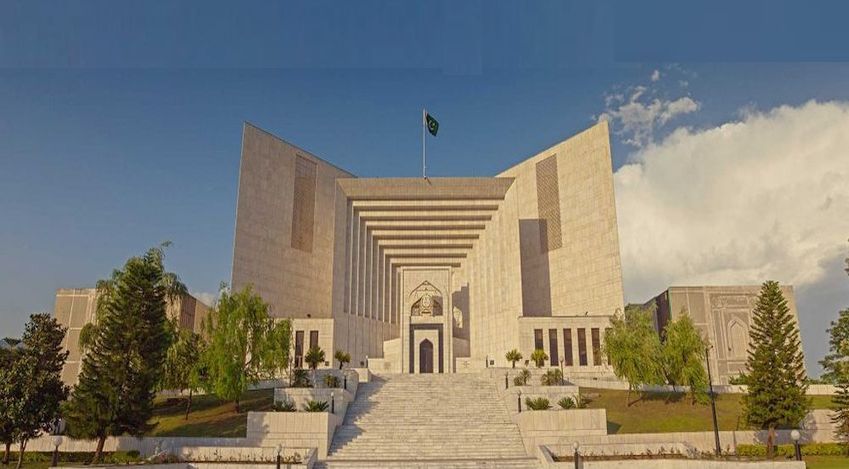Judicial Intervention is necessary where Fundamental Rights are at Stake --- Supreme Court of Pakistan directed WASA and Punjab Govt. to finalize Wastewater Treatment Plant (WWTP) in Lahore
Islamabad 06-02-2025: In a significant ruling, the Supreme Court of Pakistan has directed the Water and Sanitation Authority (WASA) and the Punjab Government to finalize financing and commence construction of the long-delayed Wastewater Treatment Plant (WWTP) in Lahore by August 2025. The Court has warned that if the project fails to progress, it may consider reverting the 6,937 kanals of acquired land to its original owners under Punjab Land Acquisition Rules, 1983, Rule 14.
The judgment was delivered by Mr. Justice Syed Mansoor Ali Shah and Mr. Justice Aqeel Ahmed Abbasi in [Civil Petitions No. 2918-L and 3039-L of 2015], concerning the three-decade delay in the WWTP project, which was initially planned in 1991-92 to treat wastewater contaminating the River Ravi.
The Court emphasized that the failure to construct the WWTP for over 30 years constitutes a serious violation of fundamental rights, particularly Article 9 (Right to Life) and Article 14 (Right to Human Dignity) of the Constitution.
- “The state has an obligation to ensure access to clean water and protect the environment. The continued failure to act is unacceptable,” the ruling stated.
The Supreme Court of Pakistan linked the WWTP’s delay to the worsening climate crisis and cited Pakistan’s high vulnerability to climate change as per the Global Climate Risk Index. The Court also highlighted that the River Ravi’s degradation has far-reaching consequences for water security, biodiversity, and agriculture.
The ruling suggested that Pakistan should explore alternative financing mechanisms, particularly Islamic climate finance options such as Green Sukuk, Waqf-based financing, and Public-Private Partnerships (PPPs).
Citing Indonesia’s 2018 Green Sukuk ($1.25 billion) and Malaysia’s SRI Sukuk, the Court noted that Islamic financial instruments provide sustainable and ethical funding solutions for climate-related infrastructure projects.
While acknowledging that policy-making is the executive’s prerogative, the Supreme Court of Pakistan clarified that judicial intervention is necessary where fundamental rights are at stake. The judgment referenced previous landmark cases, including:
- Shehla Zia Vs. WAPDA (PLD 1994 SC 693). Right to a clean environment as part of Article 9.
- Mian Asghar Ali Vs. Government of Punjab (PLD 2017 SC 674). Land acquisition must serve its intended purpose.
Under Rule 14 of Punjab Land Acquisition Rules, 1983, landowners have a legal right to claim reversion if the acquired land remains unutilized for the stated public purpose.
This landmark judgment reinforces judicial oversight in environmental governance and sets a strict accountability mechanism for government inaction on public welfare projects. If enforced, the ruling could:
- Ensure clean water access for millions in Lahore.
- Encourage sustainable infrastructure financing through Islamic finance.
- Prevent further degradation of the River Ravi.
- Set a precedent for land acquisition cases where public projects remain stalled.
The Supreme Court of Pakistan will reassess the case in September 2025 to determine whether the government has taken concrete steps toward constructing the WWTP. If no progress is reported, the Court may order the return of the acquired land to its original owners—a decision that could reshape land acquisition laws and governance accountability in Pakistan.
Powered by Froala Editor








